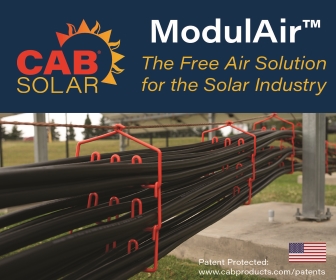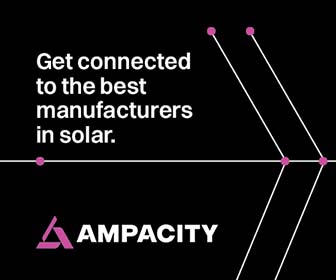Q CELLS-Powered 'Clean Up Mekong' Environmental Campaign Wins Gold at New York Festivals Advertising Awards
The positive environmental impact of an innovative campaign to use solar-powered boats to sweep the debris and waste from one of the world's most polluted rivers has been recognized at the New York Festivals Advertising Awards. The Clean Up Mekong campaign, which uses a fleet of specially designed boats, powered and propelled by Q CELLS' Q.PEAK DUO-G5 solar panels, won six awards - one in gold in the category of Environmental Effort, and five in bronze - at the prestigious awards in New York.
The Clean Up Mekong campaign is conducted by Hanwha in collaboration with Q CELLS, the Vietnam Environment Administration and the Global Green Growth Institute (GGGI). It is one of Hanwha's ongoing efforts to combat the effects of climate change and tackle energy poverty, while also encouraging responsible consumption in accordance with the United Nations' Sustainable Development Goals (UN SDGs). The campaign was born to solve a pressing ecological problem using the core tenet of its business - solar power.
The Mekong is a trans-national river that runs through China, Myanmar, Laos, Thailand, Cambodia, and finally Vietnam before discharging into the sea. It shifts 475 km3 of water annually and supports more than 70 million people who rely on the river as their main water source.
However, indiscriminately disposed waste and sewage discharge along the river's length has turned the Mekong into one of the world's ten most polluted rivers. The pollutants ultimately float into the sea and threaten marine life. As Vietnam is the last country the river runs through, the Clean Up Mekong campaign aims to remove the waste build up before it enters open water, with two Q CELLS-powered boats active at the riverside city of Vinh Long.
How it works
The key to the campaign's clean-up efforts is solar-powered boats donated by South Korean conglomerate, Hanwha. Powered and propelled by Q CELLS' Q.PEAK DUO-G5 solar panels, the boats patrol the water, scooping waste and detritus from the river into each boat's disposal hull - 100% emissions-free. A conveyor belt system installed on board makes collecting waste from the Mekong River's surface faster and more efficient. The collected waste - which on day one of the campaign (launched on World Environment Day June 5, 2019) included more than 400 pieces of plastic, 144 pieces of Styrofoam and countless items of trash) - is then cleanly disposed of. Together, the two boats can collect up to 400 to 500 kg of waste daily. The boats are also silent, resulting in minimal disturbance to local wildlife and populations who reside by the river.
Hee Cheul (Charles) Kim, CEO of Q CELLS, said: "It is becoming increasingly important for businesses to create social values as well as profits. Q CELLS is constantly devising new and innovative ways to tackle social problems with the core tenets of our business - solar energy. Our vision is to create a sustainable future for the planet, and we believe that Q CELLS will be at the forefront of climate action with our affordable and smart energy solutions."
As a clean energy solution provider, Q CELLS also donated its solar panels to the Hanwha Solar Forest campaign to combat desertification and air pollution by creating new forests with trees grown in solar-powered nurseries. This project was cited as the world-first practice for utilizing solar energy to fight desertification at the United Nations Conventions to Combat Desertification (UNCCD) COP Summit in 2011. In addition, Q CELLS' solar panels were donated to the city of Davos to generate clean solar energy, while reducing its carbon footprint in 2013.
Q CELLS | http://www.q-cells.com








.png?r=8293)



